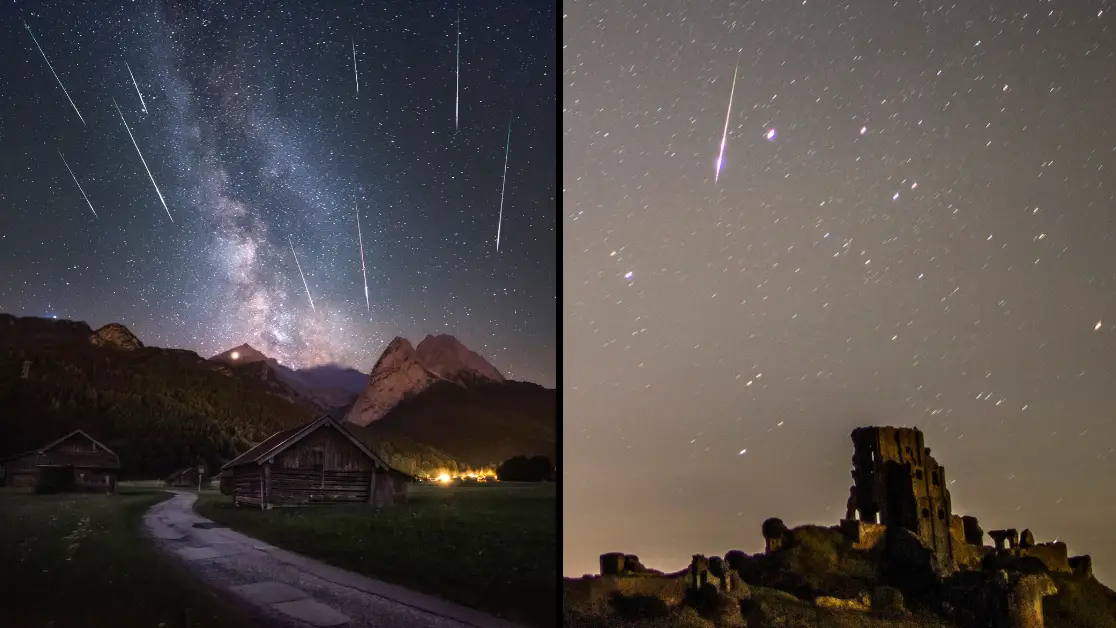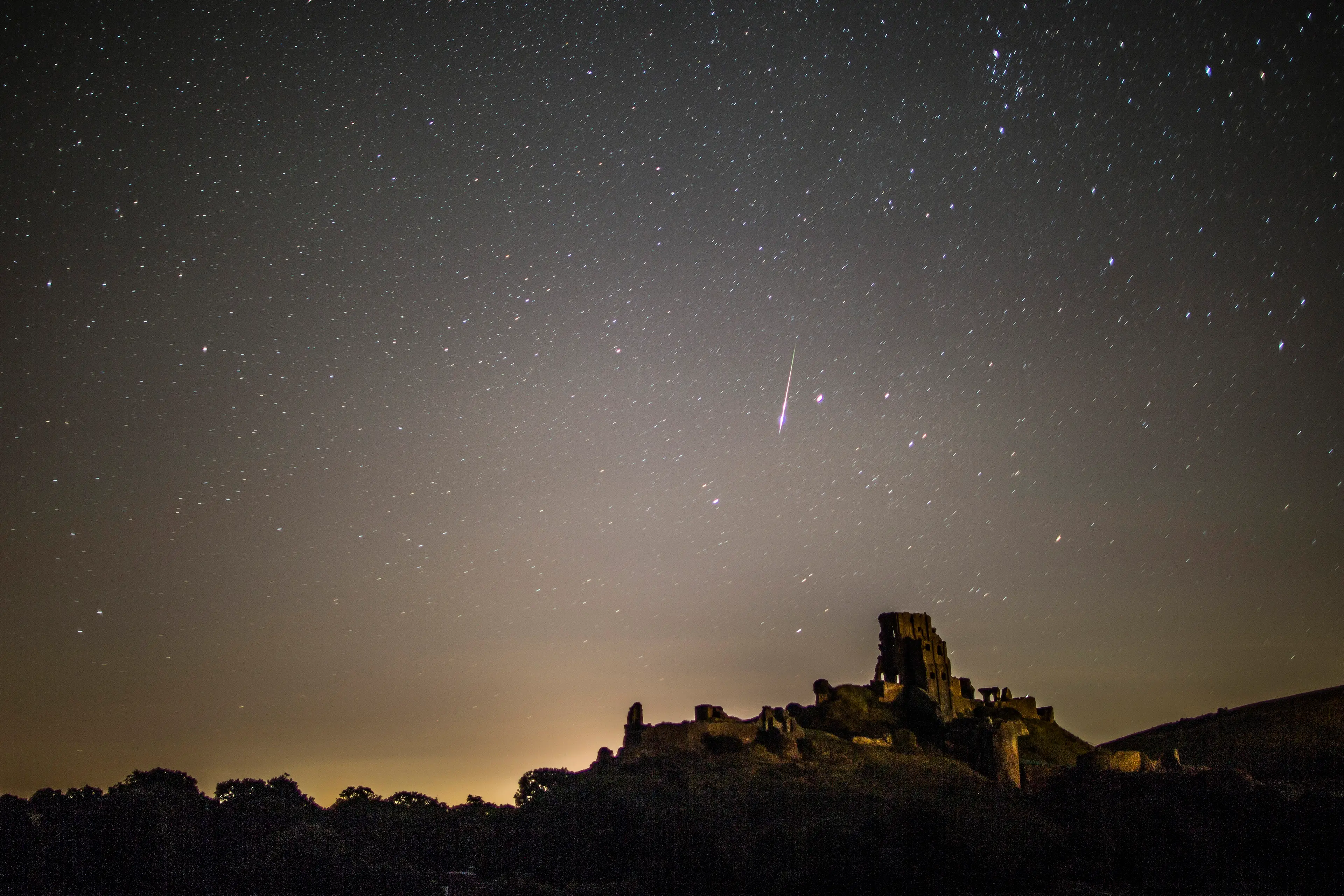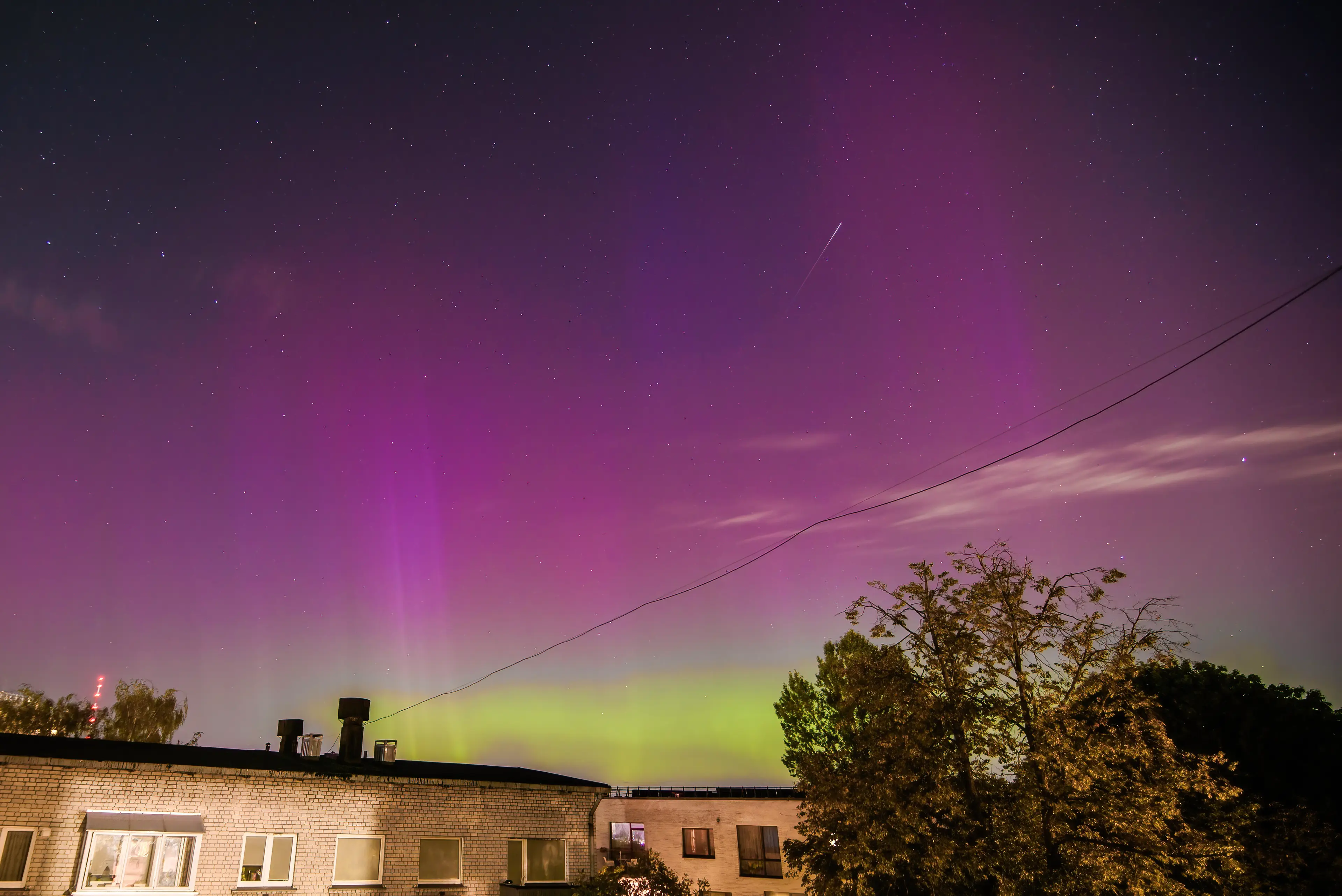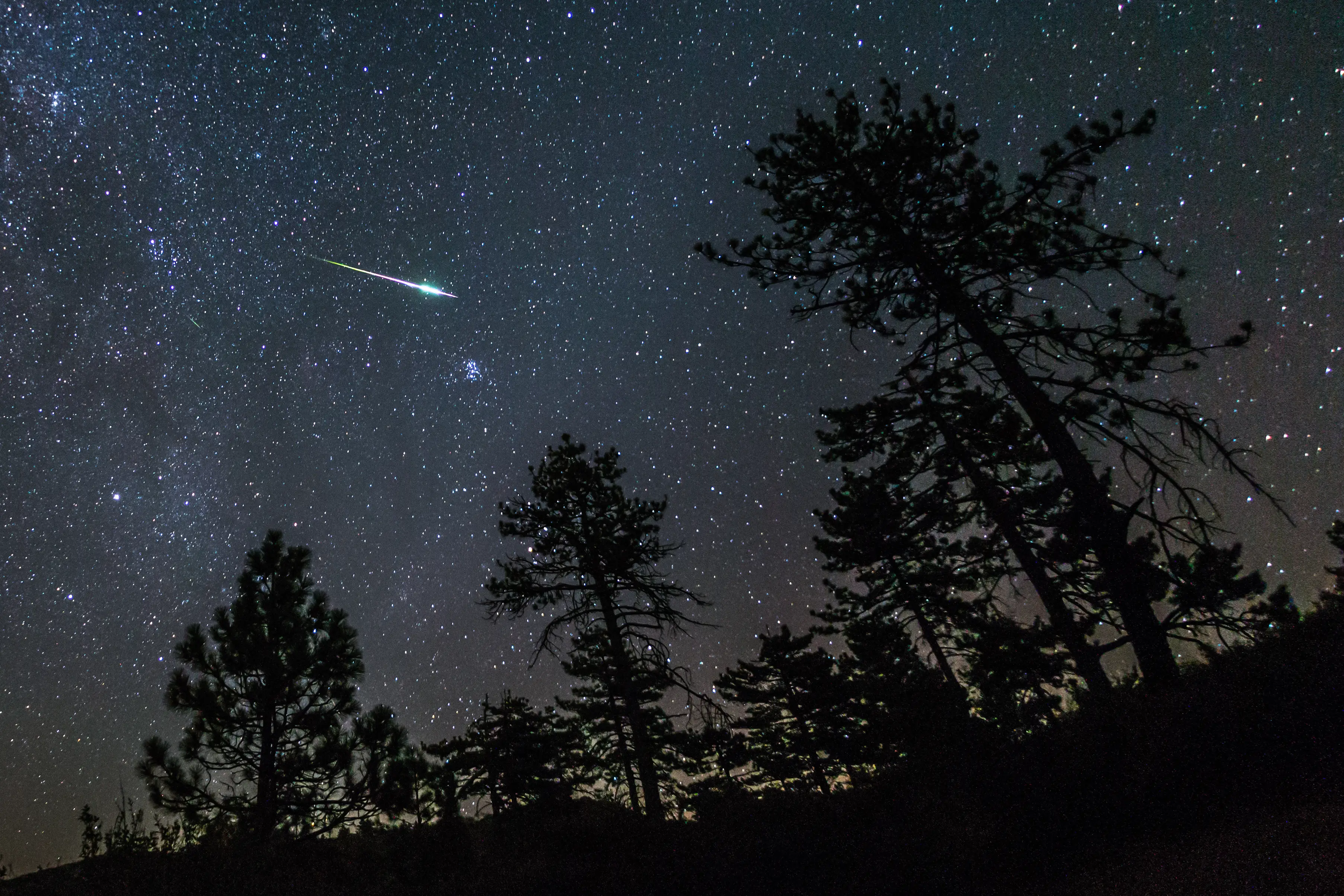
Brits are being urged to look to the heavens after the sun sets with the legendary Perseid meteor shower set to light up the night skies for one more night.
The natural phenomenon has been recorded for almost 2,000 years having first been discovered back in 36 AD.
Up to 100 meteor fragments - also known as shooting stars - will light up the night sky every single hour. That's a hell of a lot of fragments.

What is the Perseid meteor shower?
Burning up in the Earth's atmosphere, the pieces of rock are breakaway fragments from the Comet Swift-Tuttle. With a core of rock spanning 26 kilometres across, it has been lighting up the night skies for centuries on end.
Advert
Once the pieces of rock burn up in the atmosphere, they leave bright tails of light across the dark sky behind them.
When they hit the Earth's atmosphere, the fragments are tiny but travelling at roughly 36 miles per second - with the speed being the reason for the volatile burn up, as per The Sun.
The speed means that the meteor fragments can burn up in the atmosphere at temperatures hotter than 5,500 degrees Celsius.
Now, space boffins at NASA have said we're expecting the ‘best meteor shower of the year’ - so make sure you look up.

Watching the Perseid meteor shower
It's now or never if you want to catch the Perseid meteor shower this year, with it set to come to an end after tonight (13 August).
According to Daniel Brown, an associate professor in astronomy at Nottingham Trent University, you need to make sure you find a 'place that is dark' and set up shop.
We're looking at a time period of roughly 30 minutes to acclimatise to the darkness Brown says, so you can't rush it.
He said as per Sky News: "Bring along patience, and it is best to observe a big range of the sky as meteors will be visible all over.
"Best time this year during the main peak is the second half of the night, that is the early hours of August 13."

Weather is critical
As with last night's Northern Lights spectacle, we're praying on clear skies to make seeing the natural phenomenon possible.
On the forecast for 13 August, the Met Office says: "Cloud and rain will spread across the north and west today where it will feel fairly cool.
"Staying dry and bright in eastern England and feeling very warm. Breezy for many, with strong winds in western Scotland.
"Skies will gradually clear in the north tonight and winds will ease. Skies will become cloudy across the south with drizzle and it will stay mild."